55+ Sample Audit Reports
-
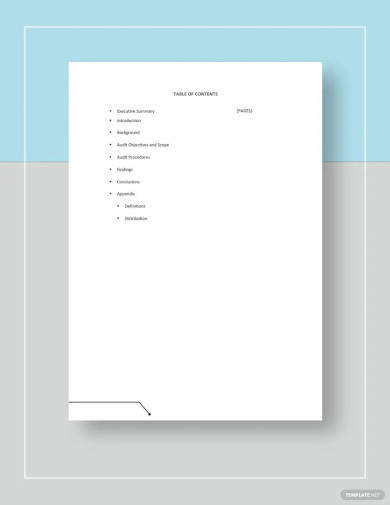
Forensic Audit Report Template
download now -
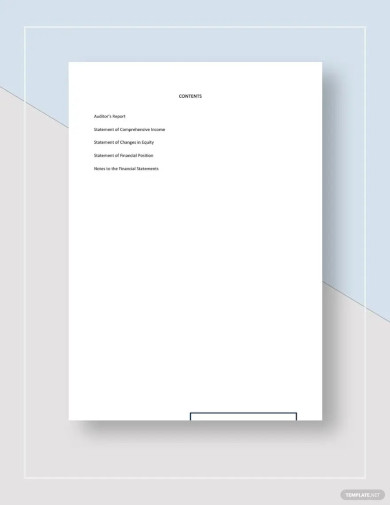
Financial Audit Report Template
download now -
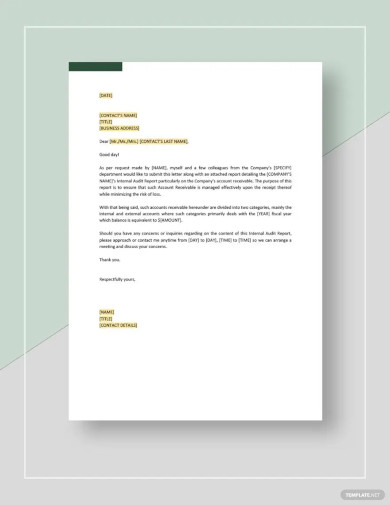
Simple Internal Audit Report Template
download now -
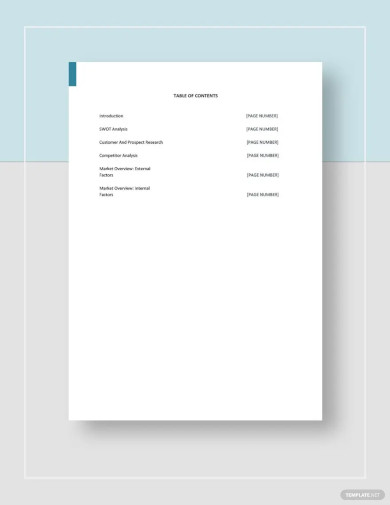
Marketing Audit Report Template
download now -
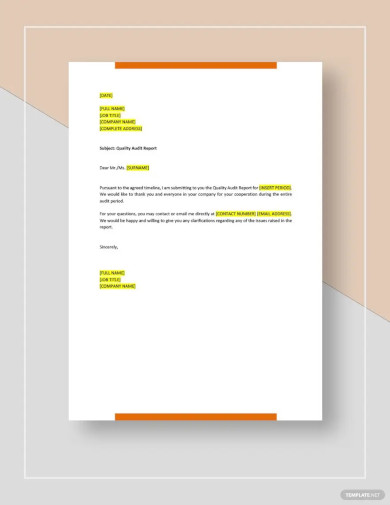
Quality Audit Report Template
download now -
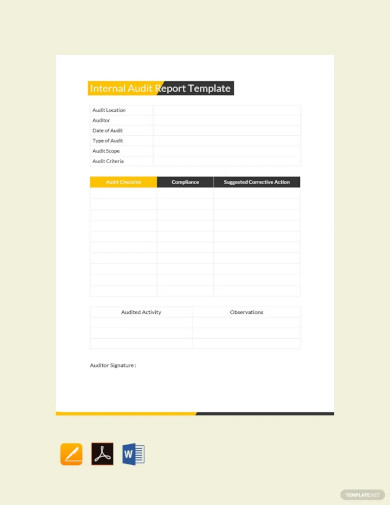
Internal Audit Report Template
download now -
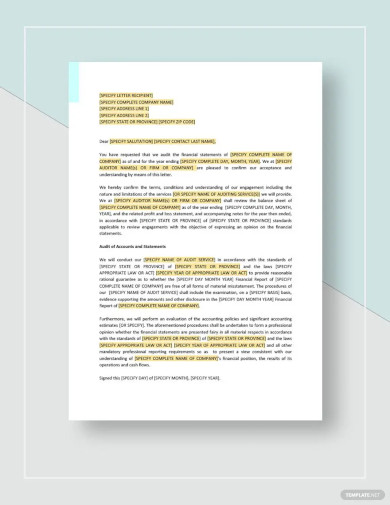
Sample Audit Report Template
download now -
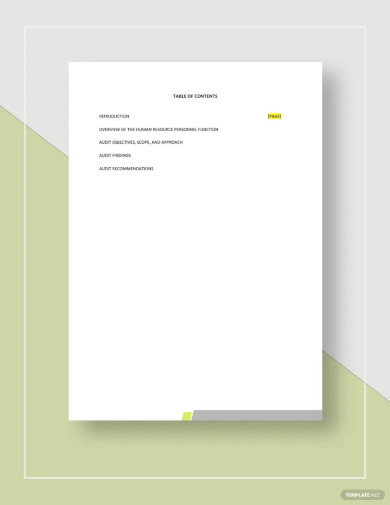
HR Audit Report Template
download now -
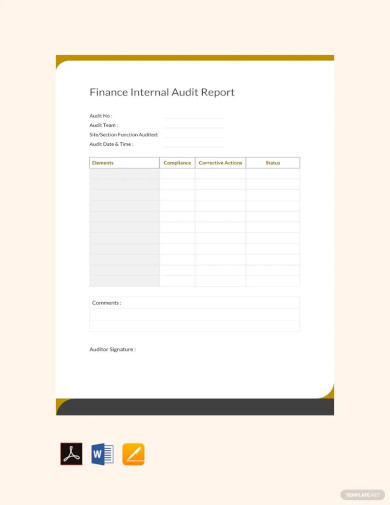
Finance Internal Audit Report Template
download now -
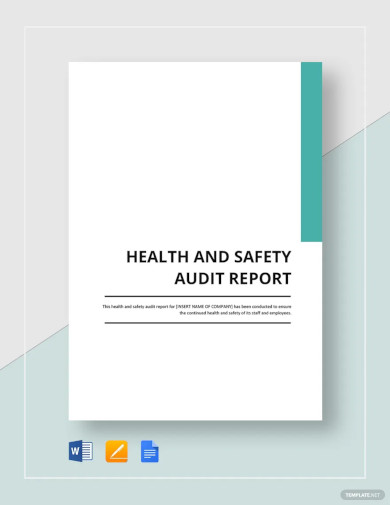
Health and Safety Audit Report Template
download now -
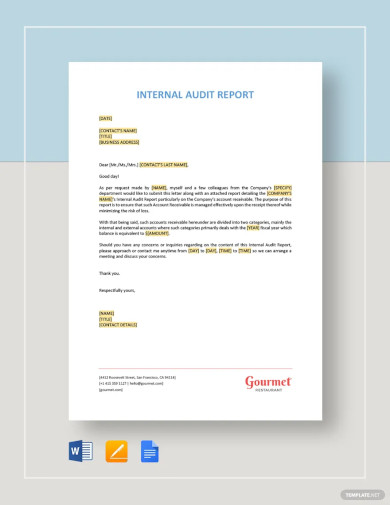
Sample Internal Audit Report Template
download now -

HR Internal Audit Report Template
download now -
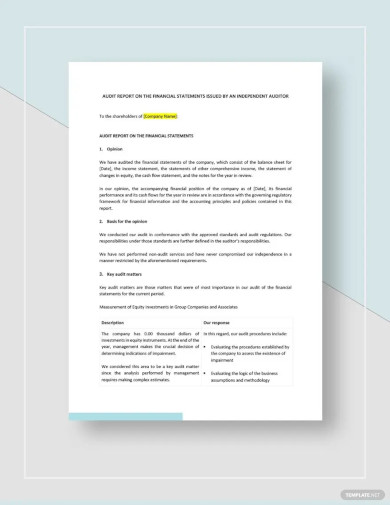
Private Company Audit Report Sample Template
download now -
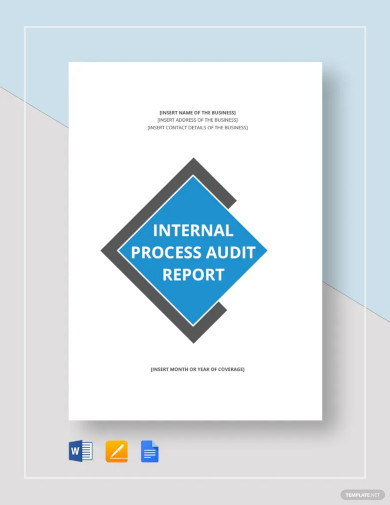
Internal Process Audit Report Template
download now -
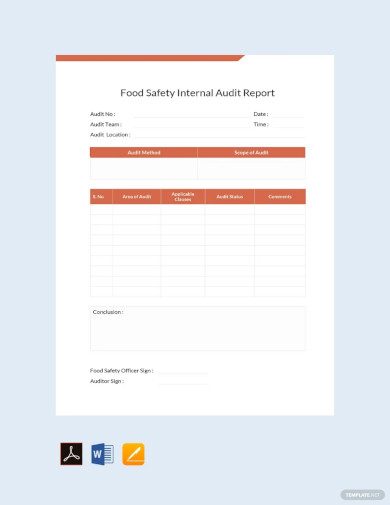
Food Safety Internal Audit Report Template
download now -
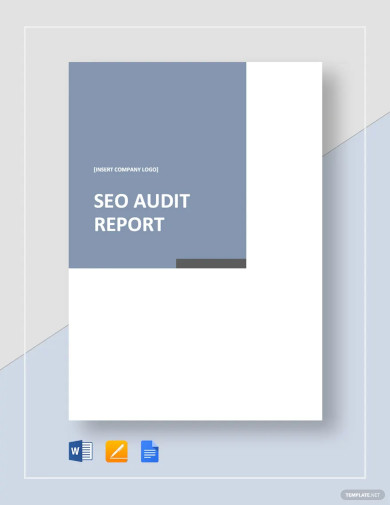
SEO Audit Report Template
download now -
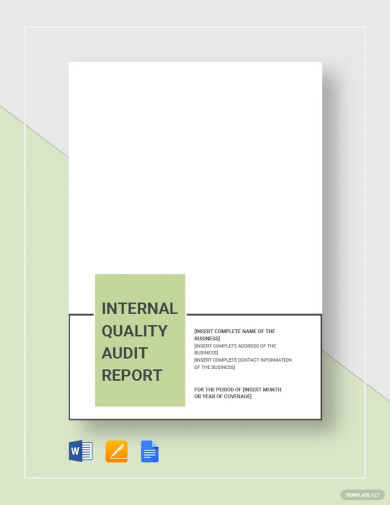
Internal Quality Audit Report Template
download now -
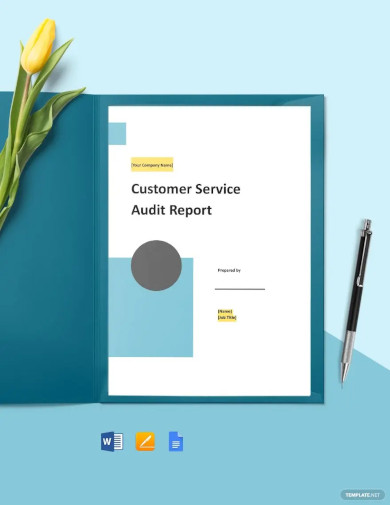
Free Customer Service Audit Report Template
download now -
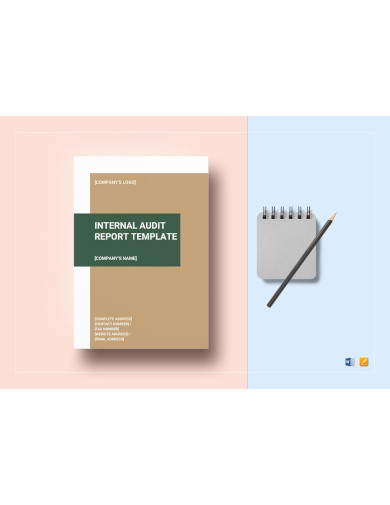
General Internal Audit Report Template
download now -
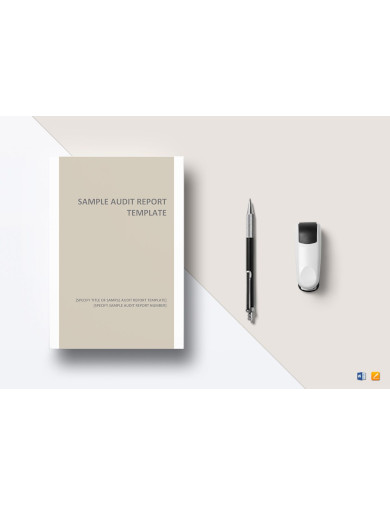
Audit Report Template
download now -
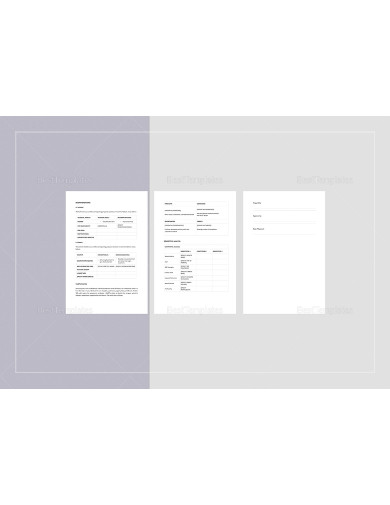
Basic SEO Audit Report Template
download now -
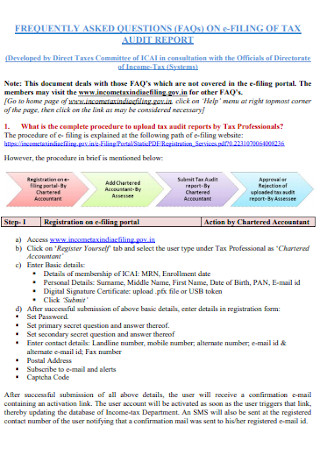
Income Tax Private Company Audit Report
download now -
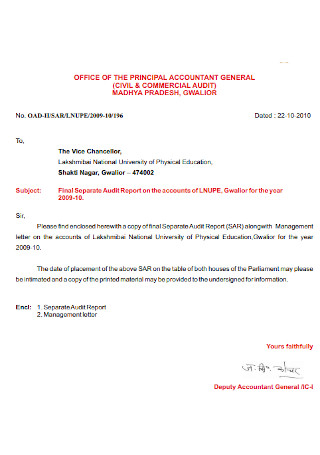
Commercial Audit Report Template
download now -
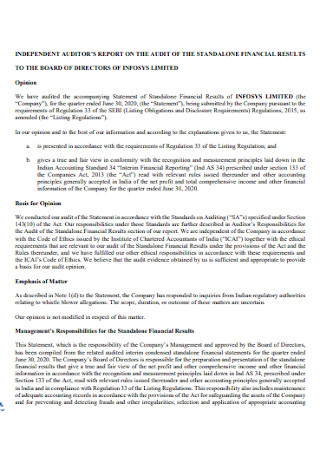
Public Company Audit Report
download now -
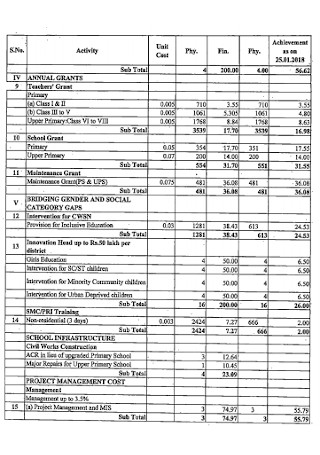
Audit Report Infographic
download now -
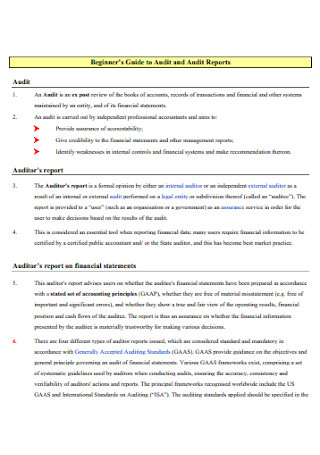
Beginners Audit Report Executive Summary
download now -

Sample Audit Report Balance Sheet
download now -
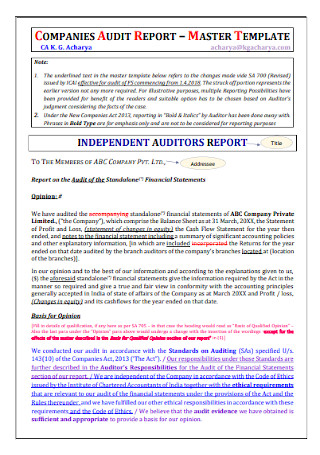
Companies Qualified Opinion Audit Report
download now -
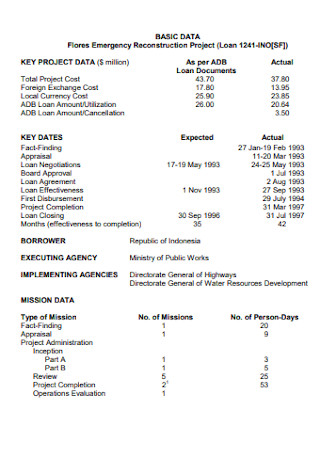
Project Performance Audit Report
download now -
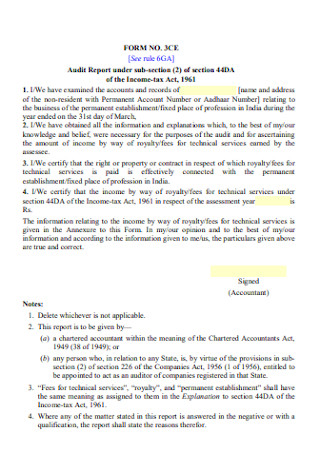
Simple Audit Report Internal Control
download now -
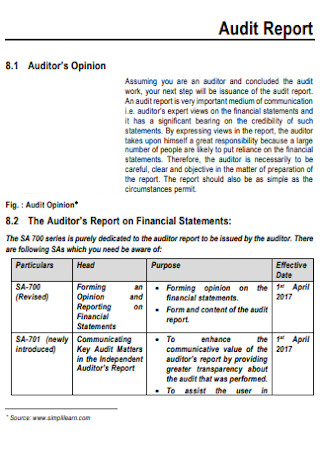
Writing Audit Financial Report
download now -
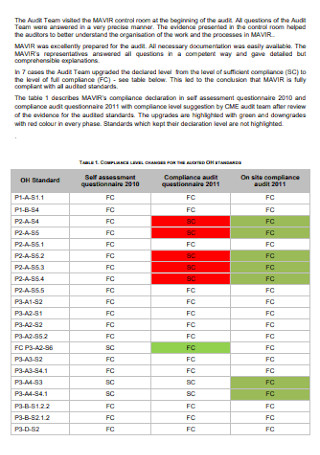
Compliance School Audit Report
download now -
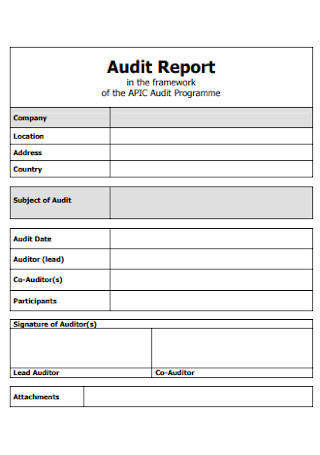
Formal Inventory Audit Report
download now -
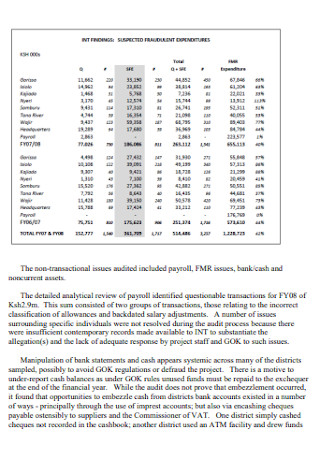
Forensic Website Audit Report
download now -
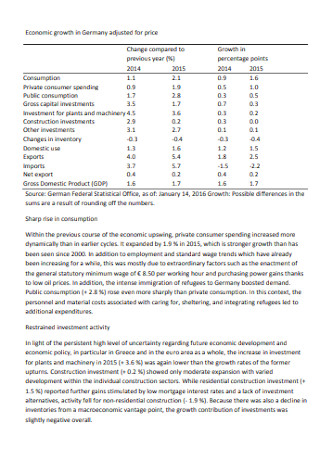
Short Form Unqualified Audit Report
download now -
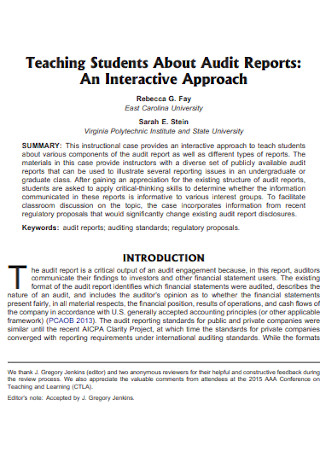
NGO Teaching Students About Audit Reports
download now -
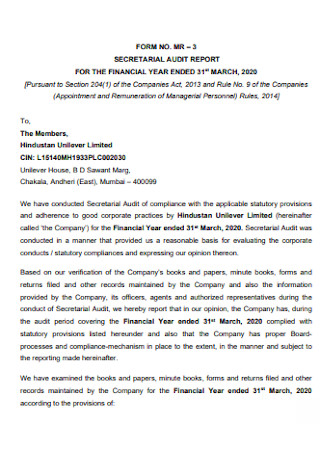
Unmodified Audit Report
download now -
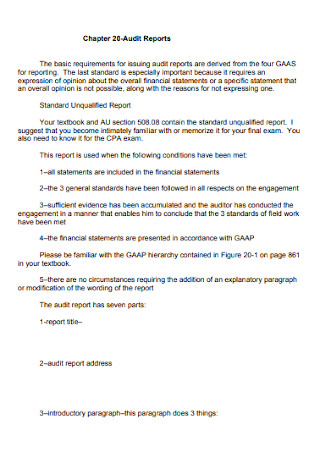
Design Audit Reports Format
download now -
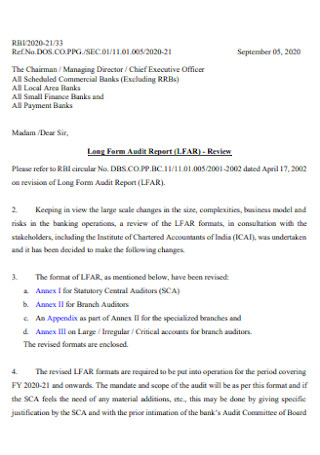
Issuer Long Form Audit Report
download now -
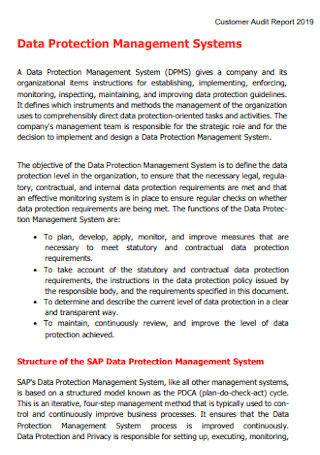
Customer Audit Report
download now -
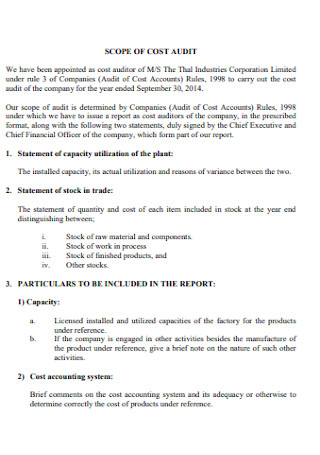
Cost Content Audit Report
download now -
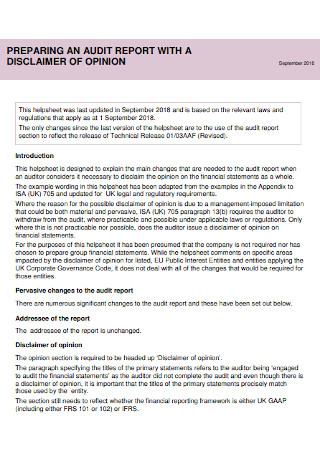
Standard Audit Report Template
download now -
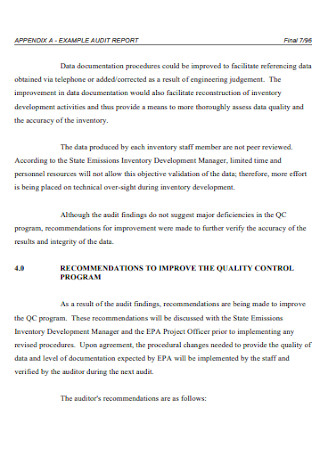
Formal Audit Report Example
download now -
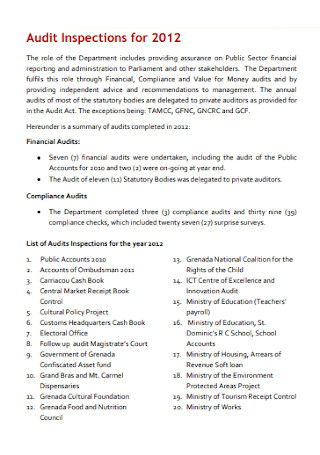
Annual Audit Report Template
download now -
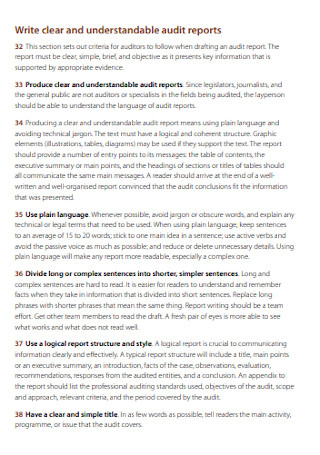
Institutions Audit Report
download now -
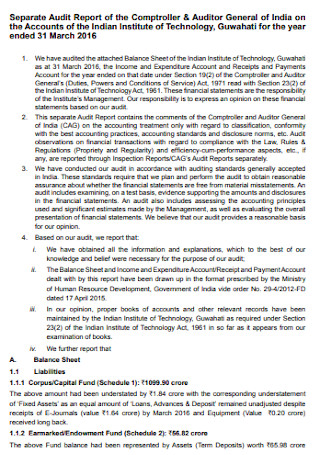
Institute Accounts of Audit Report
download now -
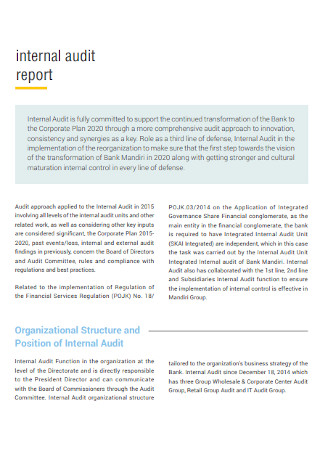
Internal Audit Report
download now -
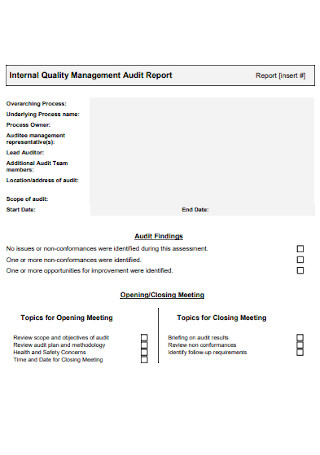
Internal Quality Management Audit Report
download now -

Financial Audit Report Template
download now -
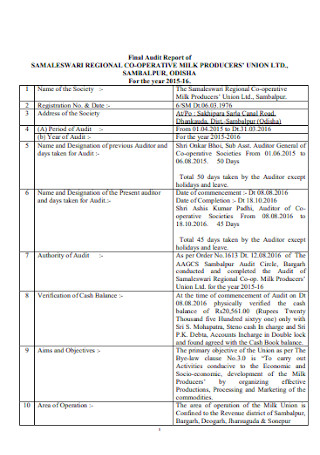
Final Audit Report
download now -
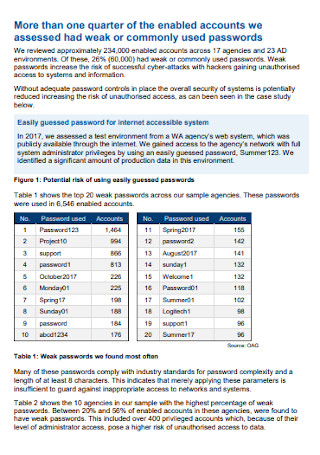
Information Systems Audit Report
download now -
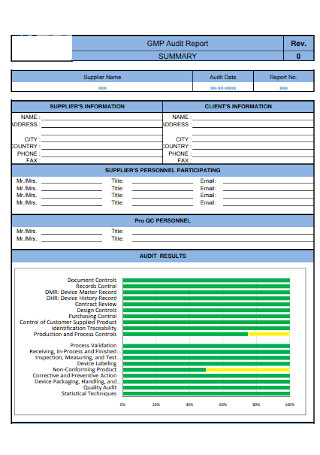
Engineering Audit Report
download now -
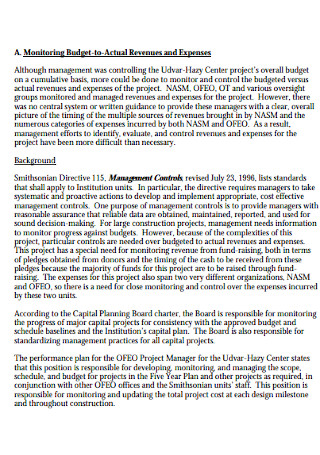
Project Management Audit Report Template
download now -
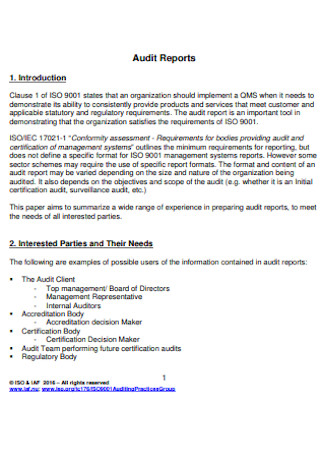
Sample Organization Audit Reports
download now -
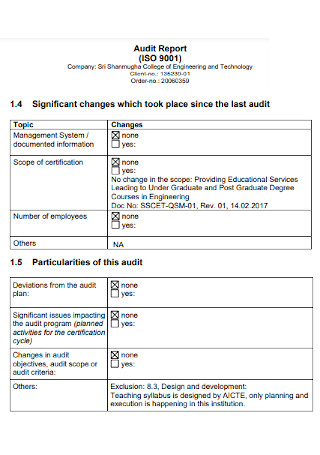
College of Engineering Audit Report
download now -
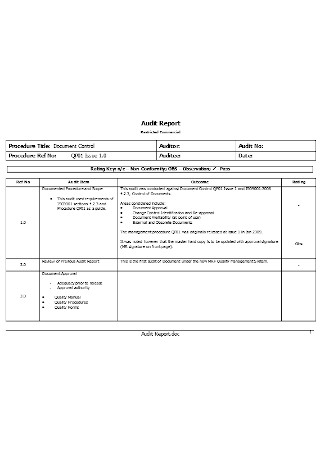
Audit Report Form
download now
FREE Audit Report s to Download
55+ Sample Audit Reports
What Is an Audit Report?
Why Are Audit Reports Essential?
What Is the Basic Audit Report Format?
What Are the Three Main Types of Audit Reports?
How to Make an Excellent Audit Report
FAQs
What are the types of audit?
What are the qualities of an audit report?
What are the steps to conduct an audit?
What Is an Audit Report?
The audit report is an official data report that describes and tabulates the financial condition and overall condition of a company. However, you can’t use a single audit report for all purposes as auditing has a series of types, which will be discussed later on. Nonetheless, the report is used to verify or corroborate certain factors asked by clients, managers, or stakeholders. At the end of making this document, the auditor will eventually present the report to figure out what is wrong in business operations, why financial statements are inaccurate, and other highlights that concern a company. And what matters is that the audit report meets its intended purpose and is easy to read for the public.
According to Tally Solutions, there are already nine types of audit—internal audit, external audit, IRS tax audit, financial audit, operational audit, compliance audit, information system audit, payroll audit, and pay audit.
Also, Investopedia reported that businesses conduct yearly audits of financial statements, including the balance sheet, income statement, and cash flow statement.
Why Are Audit Reports Essential?
You might be wondering how helpful an audit report is to businesses. And here are some of the top reasons that prove the importance of conducting regular audit reports:
Overall Awareness
Audit reports basically help you know what is improving, what is going exactly as planned, or what is getting worse in your business. The audit report is important for data analysis rather than assuming that a company is doing well without actual proof. Auditors and analysts can collaborate until every member of an organization is aware of the total condition of operations.
Meticulous Examinations
In checking, monitoring, or verifying something, there is a strategic plan involved. So you can expect careful examinations on whichever aspect of the business is the concern for auditing. Because at the end of the day, stakeholders will not just ask about the result of the audit report but also how the process was made. So a thorough procedure should be observed to reach the appropriate conclusions.
Auditing Happens Regularly
Audit reports are basically important as auditing happens on a regular basis. In fact, Investopedia said that businesses observe annual audits of financial statements from the balance sheet, income statement, to the cash flow statement. That is just one type of an audit report. So besides auditing for accounting purposes, you can expect more audits for your company every year.
Provide Solutions to Issues
Detecting problems and issues is not the only goal for conducting audit reports. You have to remember that creating an improvement plan and solutions to these problems will be realized after analyzing the report itself. So rather than being upset about an issue overtaking your business, at least you know that there is a problem already and your team only needs to work on the appropriate action to solve it.
Easy-to-Read Document
Another interesting feature of an audit report is how it is presented in an easy-to-follow format. The whole process of making the report is not a formal requirement only but it should also be understandable to the clients, stakeholders, and other professionals interested in a particular business aspect being audited. By determining your audience, you will know what data to pitch in this kind of business document.
What Is the Basic Audit Report Format?
Indeed, audit reports are important and useful to different organizations. But are you familiar with what a standard audit report looks like? For your basis, here is the basic format of audit reports:
What Are the Three Main Types of Audit Reports?
Although there are already nine acceptable types of audit reports nowadays, the standard is that there are three main types. Get introduced to these different types in this section below.
External Audit
External audits refer to audits done by outside parties. And this type is usually recommended because third parties are least likely to write any bias while auditing any aspect of an organization. Also, external auditing is helpful when stakeholders can take part in the decision-making process of a company rather than just having the internal auditors for the job. So if you want brutal honesty and constructive feedback about your company’s financial or total condition, external auditors are a must.
Internal Audit
The polar opposite of an external audit is an internal audit. These auditors are basically employed by the business so internal auditors can directly report to the manager and company’s chief executives. Also, internal auditing is initiated mostly for managerial alterations and internal control development plans. So when you compare internal and external audits, there is more independence to an external audit as they are managed by third parties. However, internal audit is still necessary to comply with for legal purposes, specifically in making a precise and timely audit report.
Internal Revenue Service Audit
The Internal Revenue Service (IRS) audit is required in terms of corroborating precise taxpayer returns and other significant transactions. But, don’t take IRS audit as simply a way to monitor what a taxpayer’s fault is. IRS auditing is still useful for statistical purposes and a comparative analysis of returns. Also, this is a compliance audit as the IRS is of concern. The results of this audit type may either be a no change to the tax return, an acceptable change by the taxpayer, or a change the taxpayer doesn’t agree with.
How to Make an Excellent Audit Report
Don’t let the many elements of a standard audit report format intimidate you because they are actually quite easy to accomplish as you go through them individually. And now for the meat of audit report lesson, are you ready to create your own audit report? You can certainly make that happen by following these simple steps:
-
Step 1: Use a Sample Audit Report Template
Your best guide to refer to in making a perfect audit report is by trusting in a sample template. As you can see above this post, there are plenty of audit report samples up for grabs. Choose your preferred template whether it is a simple audit report sample, printable external audit report, or a monthly internal audit report format. Download any example you want without the need to spend on expensive software. Also, you are free to edit your chosen template so there is room to change its content and layout.
-
Step 2: Make the General Data of Your Audit
First thing you want to confirm is what type of audit report you are making. Don’t assume that you are only concerned about financial statements all the time because there are even operational auditors, compliance auditors, investigative auditors, and more. After verifying that, state the other basic information such as the audit starting date, ending date, audit duration, and venue. What matters the most is that this general data brings context to what your audit report is.
-
Step 3: Determine the Methods and Auditing Processes
One type of audit doesn’t have the same processes for auditing. So you have to specify what steps the auditor took upon auditing. For example, did the operations auditor monitor the employees’ regular tasks? Or perhaps, what method did the inventory audit use in monitoring building items besides a tracking sheet? A detailed step-by-step process arranged chronologically will surely explain this part efficiently.
-
Step 4: Maintain a Detailed yet Specific Set of Data
Audit reports are known to collate all sorts of records and evidence from the auditing process. That means you must organize your statements with an easy-to-follow time, precise data counts, and more. For example, quality audit may have failed in your organization. But did your business even have a reliable quality assurance plan to manage quality control in the first place? Be sure to do some research to support your statements. However, only relevant statements should be included since you have to be direct rather than adding loads of data with minimal main content only.
-
Step 5: Conduct Final Assessments
The last step is to perfect your work with assessment forms. Reread your whole data report and see if there is any error that needs fixing. In fact, writing conclusions in the report should mean it has been verified already. And to make sure your report is official, sign the document with your credentials and add the audit report date. The standard is to place your complete name in print with the signature on top. And that signature means the audit report is ready to be submitted and presented.
FAQs
What are the types of audit?
Although there were three main audit types, there are actually nine types of audit. These are the internal audits, external audits, IRS tax audits, financial audits, operational audits, compliance audits, information system audits, payroll audits, and pay audits.
What are the qualities of an audit report?
Audit reports should, as much as possible, be truthful, accurate, objective, timely, clear, and wholesome. With these six qualities, you are guaranteed to make a top-notch audit report.
What are the steps to conduct an audit?
Now that you know how audit reporting works, how about doing the actual audit itself? Generally, there are six basic steps to do an audit. And these are:
- Choose a topic and identify the criteria for auditing.
- Plan on how the audit process plays out.
- Gather and analyze data.
- Determine corrective action plans needed.
- Create improvements.
- Audit regularly.
While it is known that auditors depict how financially well a company is, audits also contain a summary of the overall health of a business. In fact, a single audit report may concern loads of professionals such as the board directors, investors, shareholders, and company stakeholders. And it only makes sense to depend on a professionally made and user-friendly template for an accurate and careful audit report seamlessly. Download a sample audit report template for your organization now!
